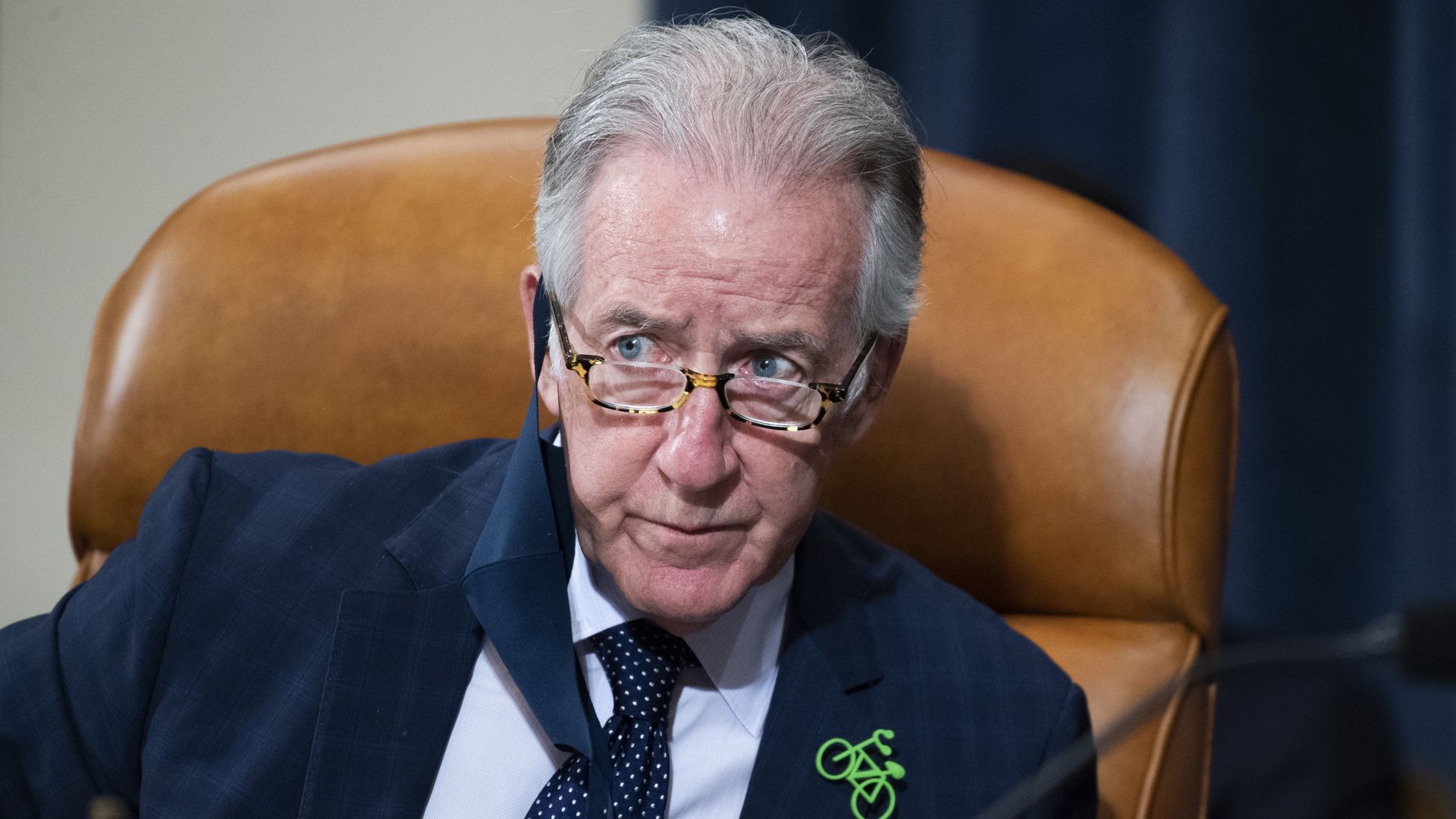Sep 15, 2021 - Politics & Policy
Estimate: Revenues would drop before increasing under Dems' tax plan
Add Axios as your preferred source to
see more of our stories on Google.

Democratic Rep. Richard Neal, chair of the House Ways and Means Committee, which has submitted a draft proposal on raising taxes. Photo: Tom Williams/CQ-Roll Call via Getty Images

